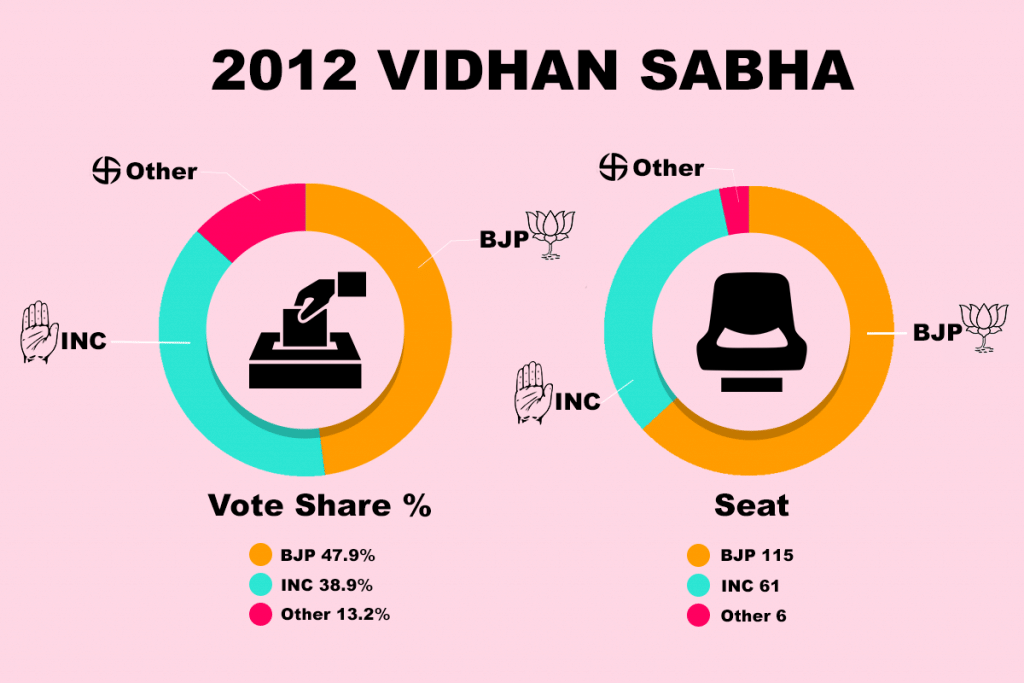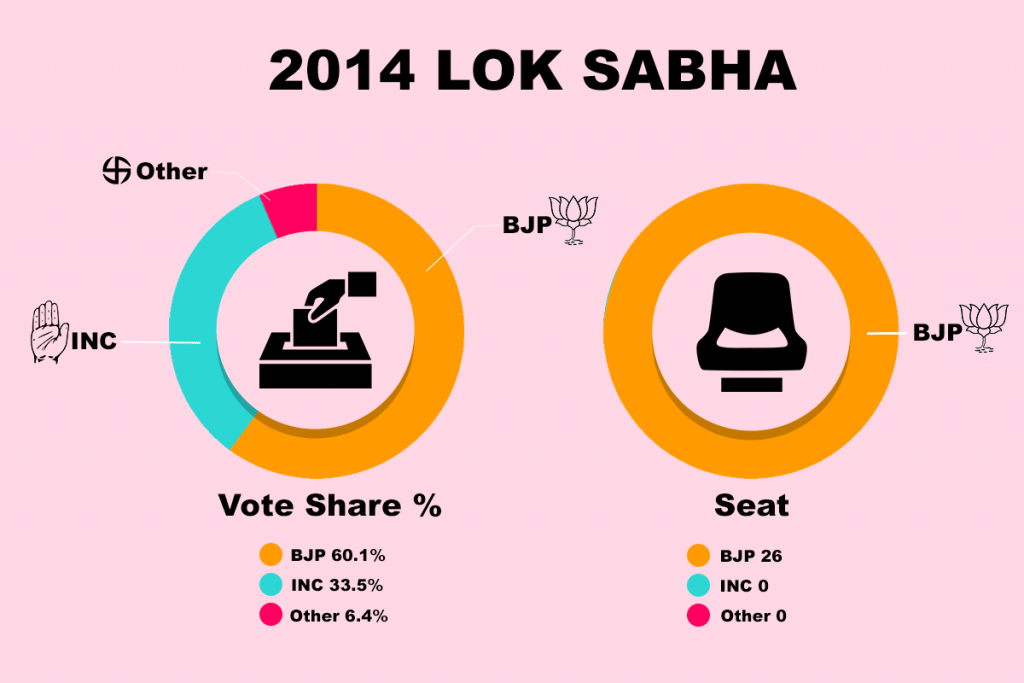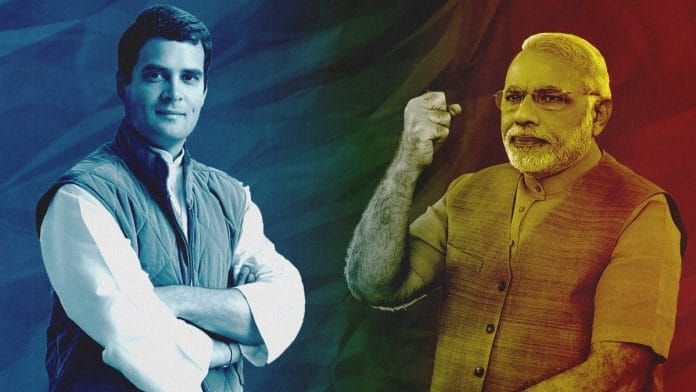The Congress treated Mevani-Patel-Thakor as political fragments, and did not incorporate their arguments in its electoral agenda to evolve a new political narrative.
Two conflicting narratives from the Gujarat election of 2017 are going to survive (at least till the next assembly election). The BJP, as expected, is celebrating its victory as one that establishes Narendra Modi’s image as an invincible leader, and the BJP as the ultimate choice of Indian electorates.
The Congress’s narrative is equally persuasive. It is hailing the notable performance of the party in Gujarat as the ‘Rahul Gandhi impact’. Congress leaders are confident that the social coalition of Patels, OBCs and Dalits that the Congress worked out in the state might help the party in 2019 at the all-India level.
BJP’s narrative: Modi’s victory
There is certainly an element of truth in both of these observations. The BJP’s performance in Gujarat is remarkable. The party had to face anti-incumbency; it had to deal with the impact of GST and demonetisation; and, above all, it was facing an administrative crisis that had deepened gradually in the post-Modi regime in the state.
Besides, the BJP had to struggle with a multifaceted social opposition.
Despite these seemingly powerful disadvantages, the BJP not only won the required seats to emerge as the dominant player in the state, but also improved its vote share in comparison to the 2012 election. It is, therefore, not surprising for the BJP to give credit to Modi and describe itself as the first choice of the Indian voters.


However, the BJP’s growing dependence on Modi as the sole face of the party’s electoral promises underlines a serious crisis of political centralisation, and an erosion of inner-party democracy.
Congress’s narrative: Rahul’s victory as challenger
The Congress’s performance cannot be underestimated in Gujarat for two reasons. First, unlike Uttar Pradesh, Gujarat is the state where the Congress has to take on the BJP in an open two-party electoral competition.
The Congress had to rely on its traditional support base, and at the same time, had to make a few strategic moves. Despite the fact that the Congress had no other political coalition partner in the state, it challenged the powerful BJP as an independent political entity.
The second positive aspect of the Congress’s performance is also relational. It is well known that the BJP has a powerful institutional set up in Gujarat, which was nurtured and strengthened by the VHP and RSS from time to time.
The Congress did not merely challenge this institutional set-up of the Hindutva family, but also tried to capitalise on the Hindu identity in a profound manner. The Congress consolidated its presence in the assembly; its vote share improved, and it emerged as a legitimate challenger, at least in the next few elections.
Does Gujarat offer an alternative political narrative?
The Gujarat election results however, cannot be described as a counter-narrative, particularly from the point of view of the 2019 Lok Sabha polls. It is true that the Congress has emerged as a powerful political force, with an equally energised Rahul Gandhi as party president; but, the party has not shown any interest in constructing an alternative political-electoral discourse for 2019.
The Gujarat election actually offered an important opportunity to Congress. Jignesh-Alpesh-Hardik did not represent Dalits-OBCs-Patels/Patidars in the conventional political sense. Rather, they articulated three very powerful discourses.
Hardik Patel redefined the old anti-reservation politics of Gujarat by arguing that the OBC category should be reworked in the state. Similarly, Alpesh Thakor represented the aspirations of those who have OBC reservations, but do not have adequate economic opportunities. Finally, Jignesh Mevani made a case for landless Dalit identity.
Interestingly, these emerging political currents were completely overlooked by the Congress. The party establishment saw these leaders as political fragments, and did not incorporate their arguments in the Congress’s electoral agenda. This was the biggest political loss for the Congress.
Hilal Ahmed is an associate professor at CSDS.






